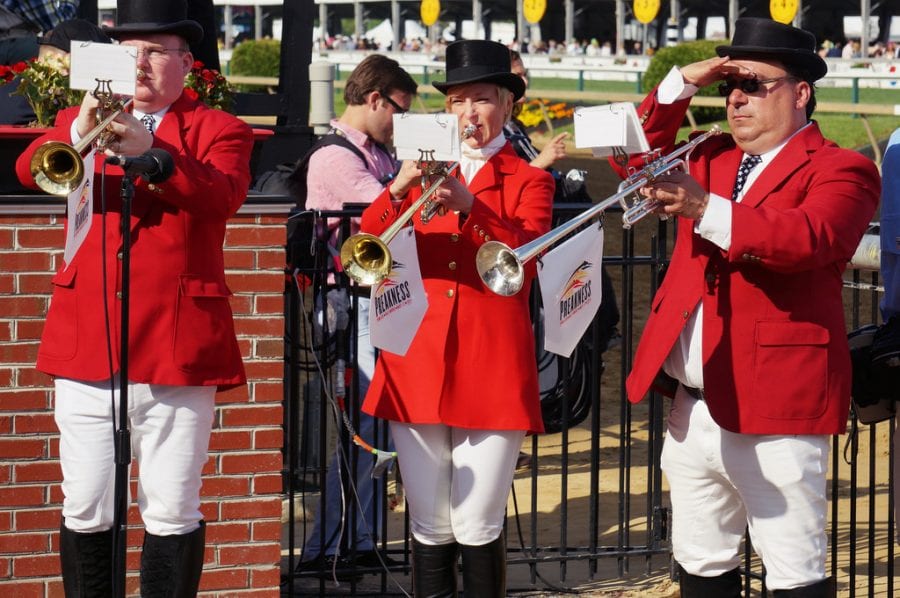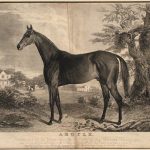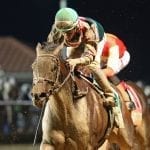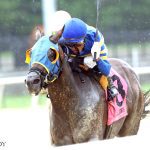OPINION: RIGHT CALL ON “MARYLAND, MY MARYLAND”

It’s a secessionist anthem set to music previously – and much more famously – used for other songs, among them “O Tannenbaum.”
Given that, it’s a wonder, in this day and age, that anyone defends “Maryland, My Maryland.”
And it is clear that the Maryland Jockey Club’s decision to eliminate the playing of Maryland’s state song at the Preakness, first reported here, is the right call at the right time. Let’s hope the state of Maryland follows suit in its 2021 legislative session and retires the song.
If horse racing wants to have a future, it needs to live in the 21st century. That is, in a century in which Maryland, and the nation, are multi-racial, multi-ethnic, and multi-cultural – and becoming more multi all the time.
A good place for the industry to start is by eliminating secessionist nonsense at its biggest events.
The poem that became the song “Maryland, My Maryland” was written by James Ryder Randall in 1861 to spur the Free State to secede from the Union and join the Confederacy. It describes President Abraham Lincoln and the Union as, variously, tyrannical, despotic, and, finally, “Northern scum.”
Not to put too fine a point on it, “Maryland, My Maryland” pines for the Old Line State to join a cause whose success would have destroyed the United States and fostered the indefinite continuation – and possibly the geographical expansion – of chattel slavery in North America.
- Mid-Atlantic three stars: July 14, 2025
 Your five-minute read to catch up on racing highlights from around the Mid-Atlantic this past week!
Your five-minute read to catch up on racing highlights from around the Mid-Atlantic this past week!
Not exactly the best message for the Thoroughbred industry in a state that will be majority-minority in the near future.
Some folks argue that we should keep the song to adhere to a tradition that began in 1909.
But calling other states “scum” and our greatest president a despot is no tradition we should want to continue.
Others will point out that, typically, as at the Preakness, only the relatively bland third stanza is sung. But this makes the point: you’ve got to do a bit of searching to find stanzas that don’t offend.
Or they’ll say that modern Marylanders don’t mean offense by the song, or don’t even know the words to it. But what sort of defense is one really offering when saying, “We don’t mean what the song quite plainly says”?
Of course, a state song is inherently political, an expression of what society values – of what we value. What message does “Maryland, My Maryland” send to the world about what the state values?
Finally, some will claim that changing the song is caving into a mysterious “them” that wants to “erase our history.”
- Argyle and Thoroughbred racing in the 1830s
 Connected to Supreme Court justices and governors, the Maryland-bred Argyle became one of the best horses of the 1830s. His story.
Connected to Supreme Court justices and governors, the Maryland-bred Argyle became one of the best horses of the 1830s. His story.
Piffle. Maryland’s history will still be what it is, regardless of whether the song is played at the Preakness. Historians will ply their trade, and museums will mount exhibitions. Teachers will teach, and authors will write. Some Marylanders will have done great things, and some will have done terrible things. None of that will change.
Nor will we pretend that the Civil War didn’t occur.
Traditions are not straitjackets, binding the behavior of future generations. They’re old clothes, to be worn when fitting and comfortable – and cast aside when they no longer fit, or when they offend.
Ultimately, the move to remove “Maryland, My Maryland” from Preakness day – or as the state song altogether – is not about erasing the past. In fact, It’s not about the past at all.
It’s about creating a present that’s welcoming to all Marylanders, and all Americans. That’s a good message for the Maryland Jockey Club to send.
LATEST NEWS
















Removing songs and other stupid things such as monuments has no bearing on removing the behaviours of many racist individuals within racing. Change comes from action not from public displays at an attempt to show solidarity for a cause that behind close doors they still continue to foster.
Nobody thinks ditching Maryland, My Maryland will eliminate racism. It’s a symbolic change, but symbols matter, and Maryland, My Maryland is a symbol of a time and mindset that have no place in 2020 America (or, more precisely, should have no place).